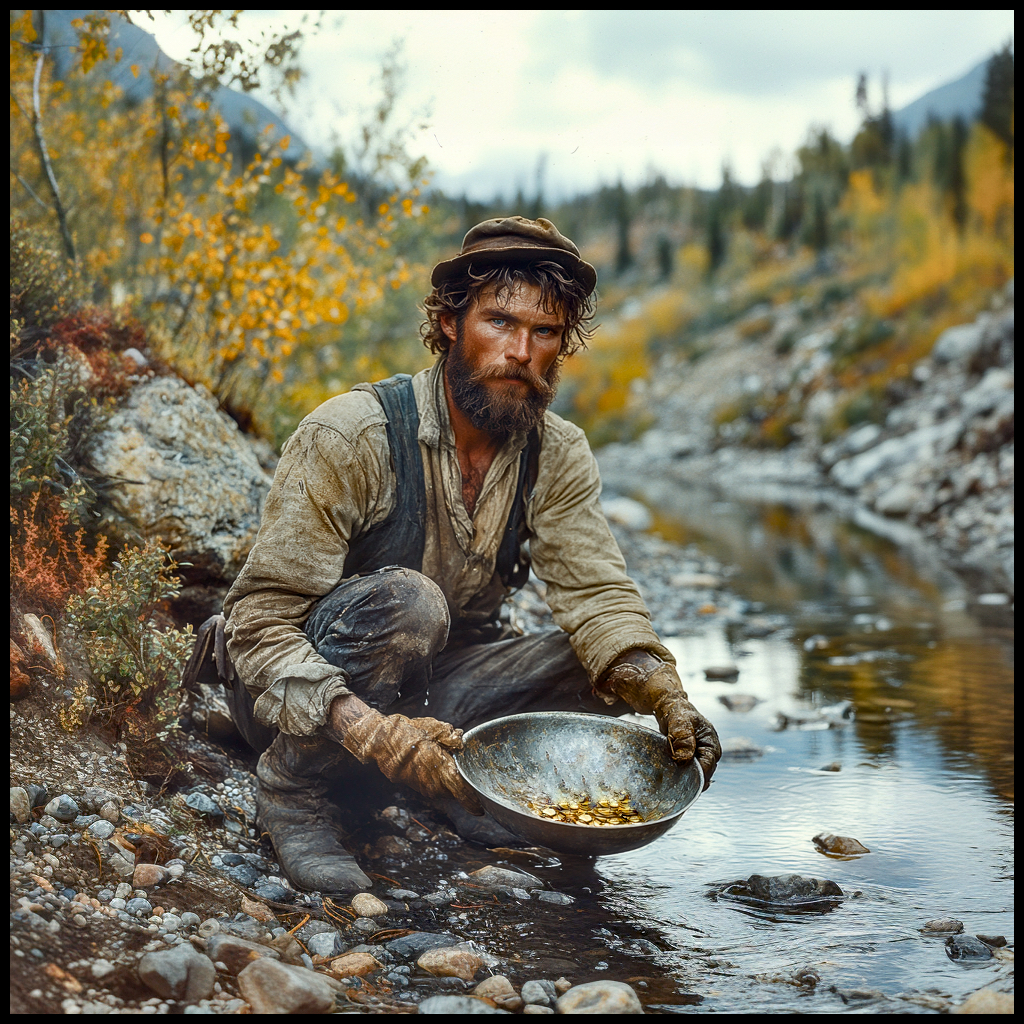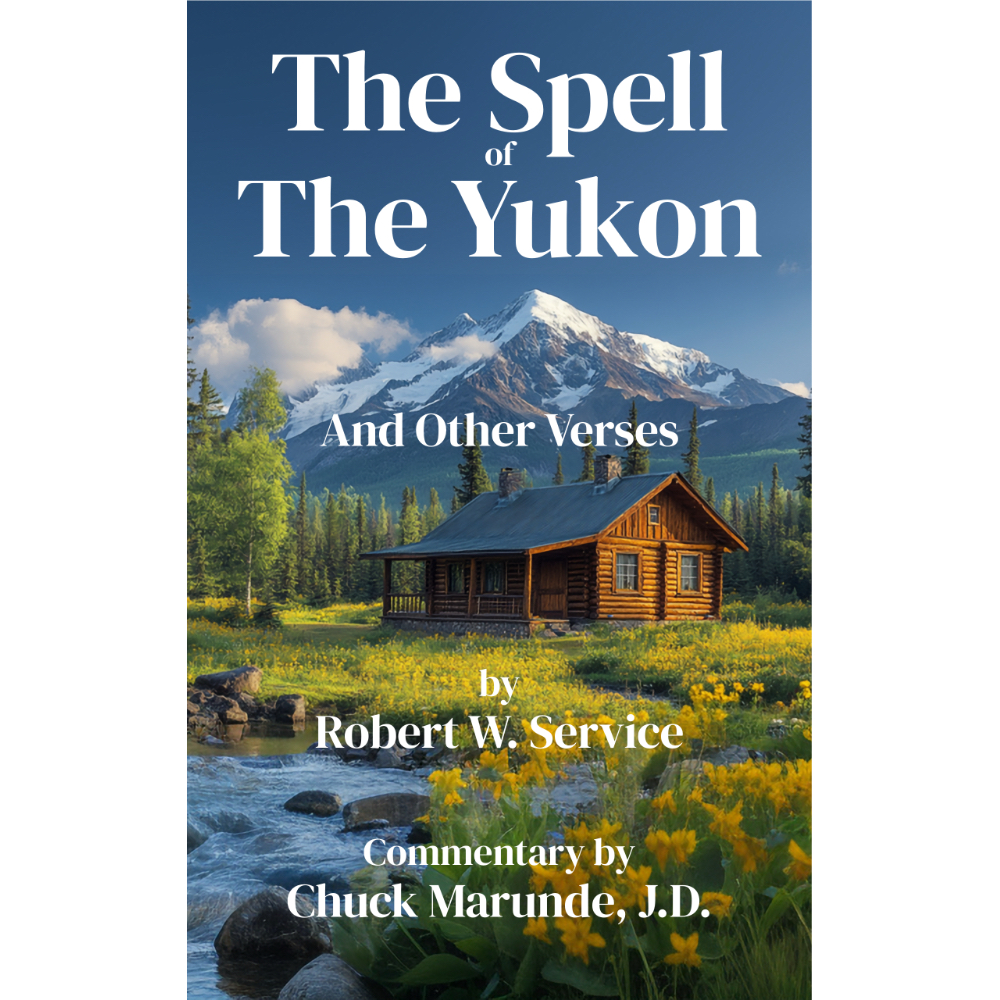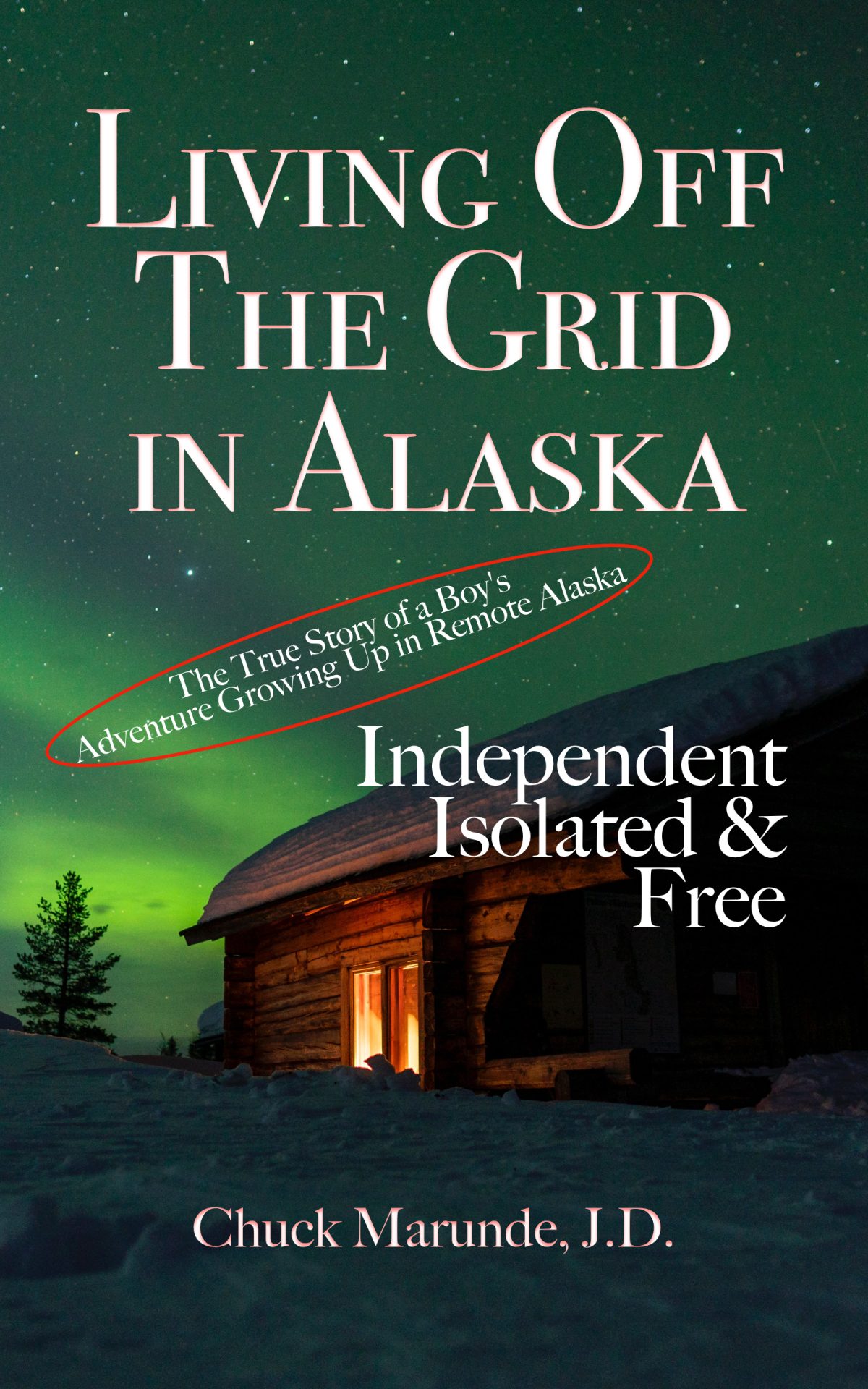I grew up in a remote region of Alaska with my parents, two sisters, and two brothers in a 900-square-foot cabin without electricity or plumbing. We heated the cabin with a 55-gallon barrel my father welded into a wood stove. Our bathroom was an outhouse in the largest forest in America. Our only light was a Coleman lantern hanging on a bent-over 16-penny nail in a plywood ceiling. We lived on Moose, Caribou, dall sheep, and Salmon.
In the cold winter evenings, I would lay on the floor near the wood stove and read Robert Service poems. My favorites were The Spell of the Yukon, The Cremation of Sam McGee, and The Shooting of Dan McGrew. I share these poems with you in this reprint of The Spell of the Yukon and Other Verses with a warm heart full of fond memories. I hope you enjoy them as I still do.
 Robert William Service (1874–1958), often hailed as “the Bard of the Yukon,” was a Scottish-Canadian poet and writer whose vivid verses captured the rugged spirit of the North American frontier. Born in Preston, England, to Scottish parents, Service spent his early years in Glasgow before embarking on a life of adventure that would shape his literary legacy. At age 21, he left Scotland for Canada, drifting through the western United States and British Columbia as a laborer, cowboy, and dreamer, before settling into a quieter career as a bank clerk. In 1904, the Bank of Commerce sent him to Whitehorse in the Yukon Territory, where he arrived after the Klondike Gold Rush but found himself immersed in its lingering tales of hardship and heroism.
Robert William Service (1874–1958), often hailed as “the Bard of the Yukon,” was a Scottish-Canadian poet and writer whose vivid verses captured the rugged spirit of the North American frontier. Born in Preston, England, to Scottish parents, Service spent his early years in Glasgow before embarking on a life of adventure that would shape his literary legacy. At age 21, he left Scotland for Canada, drifting through the western United States and British Columbia as a laborer, cowboy, and dreamer, before settling into a quieter career as a bank clerk. In 1904, the Bank of Commerce sent him to Whitehorse in the Yukon Territory, where he arrived after the Klondike Gold Rush but found himself immersed in its lingering tales of hardship and heroism.
Though not a prospector himself, Service absorbed the raw energy of the Yukon through the stories of its people, channeling their experiences into his first and most famous collection, The Spell of the Yukon and Other Verses (1907). The book’s success, driven by poems like “The Shooting of Dan McGrew” and “The Cremation of Sam McGee,” made him an overnight sensation and a voice for the wild north. His knack for blending gritty realism with romantic flair earned him a wide readership, though he resisted the label of “serious poet,” preferring to call himself a “versifier” of the common man.
Service’s life was as restless as his poetry. After leaving the Yukon in 1912, he roamed Europe as a war correspondent during World War I, later settling in France with his wife, Germaine, where he continued writing novels and poems until his death in 1958. His works—marked by humor, vivid imagery, and a deep reverence for the untamed—remain timeless tributes to the landscapes and souls that shaped him. This collection invites you into the world of a man who turned the call of the wild into an enduring song.
Each poem includes a section titled “Historical Context and Analysis” which helps to explain the time and meaning intended by Robert W. Service.








Reviews
There are no reviews yet.